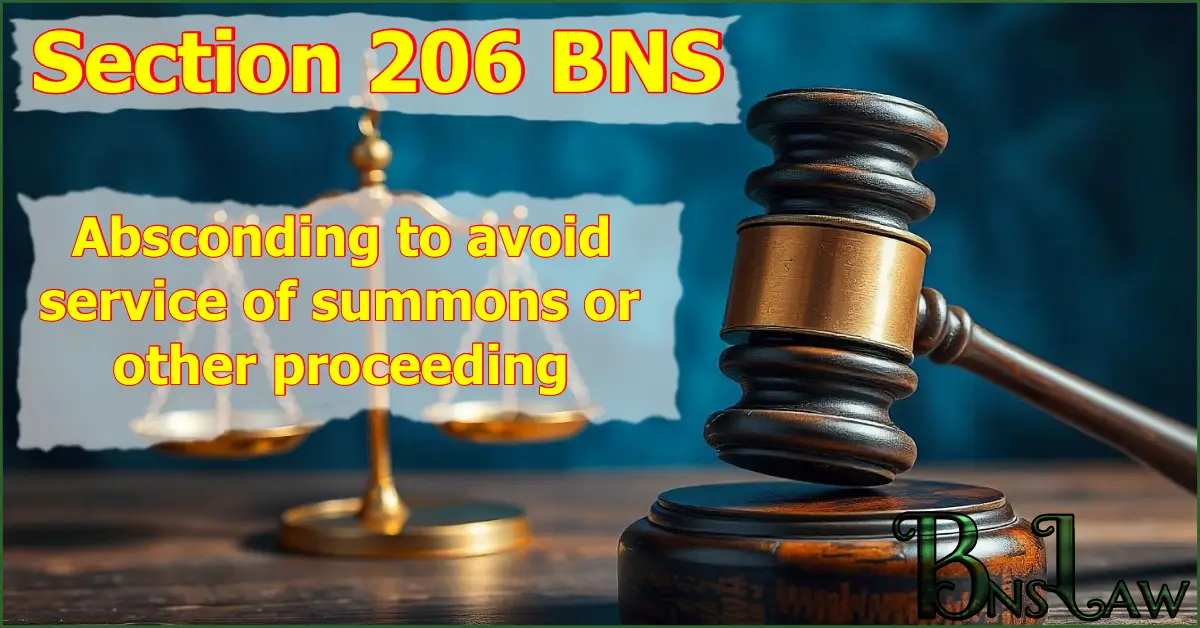Section 206 BNS | BNS 206
Whoever absconds in order to avoid being served with a summons, notice or order proceeding from any public servant legally competent, as such public servant, to issue such summons, notice or order,—
206(a) BNS
shall be punished with simple imprisonment for a term which may extend to one month, or
with fine which may extend to five thousand rupees, or with both;
206(b) BNS
where such summons or notice or order is to attend in person or by agent, or to produce a document or an electronic record in a Court shall be punished with simple imprisonment for a term which may extend to six months, or with fine which may extend to ten thousand rupees, or with both.
READ OTHER SECTIONS OF CHAPTER XIII — OF CONTEMPTS OF THE LAWFUL AUTHORITY OF PUBLIC SERVANTS
FAQs of BNS Section 206
-
206 BNS punishment and fine
Punishment and fine under Section 206 of the BNS—
206(a): Simple imprisonment for 1 month, or fine of 5,000 rupees, or both.
206(b): Simple imprisonment for 6 months, or fine of 10,000 rupees, or both. -
206 BNS cognizable or not
The offence under Section 206(a) and 206(b) of the BNS is non-cognizable
-
206 BNS bailable or not
The offence under Section 206(a) and 206(b) of the BNS is bailable.
-
206 BNS trial court
Offence specified in Section 206(a) and 206(b) of the BNS is triable by any Magistrate.
Important Points
- Cognizable Offences: These are offences where a police officer can arrest a person without a warrant.
- Non-Cognizable Offences: These are offences where a police officer cannot arrest a person without a warrant.
- Bailable Offences: These are offences where the accused can get bail from the police station itself. All bailable offences are listed in the First Schedule of the Bharatiya Nagarik Suraksha Sanhita (BNSS).
- Non-Bailable Offences: Offences in which bail is not granted directly from the police station but after hearing the case in the court, the judge decides when bail will be granted. All non-bailable offences are listed in the first schedule of the Bharatiya Nagarik Suraksha Sanhita (BNSS).
- In the above FAQ, “trial court” means the court that has jurisdiction to try the offence.
- In the above FAQ, the expression “Magistrate of the first class” and “Any Magistrate” does not include Executive Magistrates.
Read other Sections of the BNS
Reference Link: New Criminal Laws (BNS), Ministry of Home Affairs







